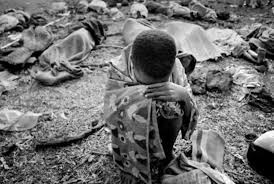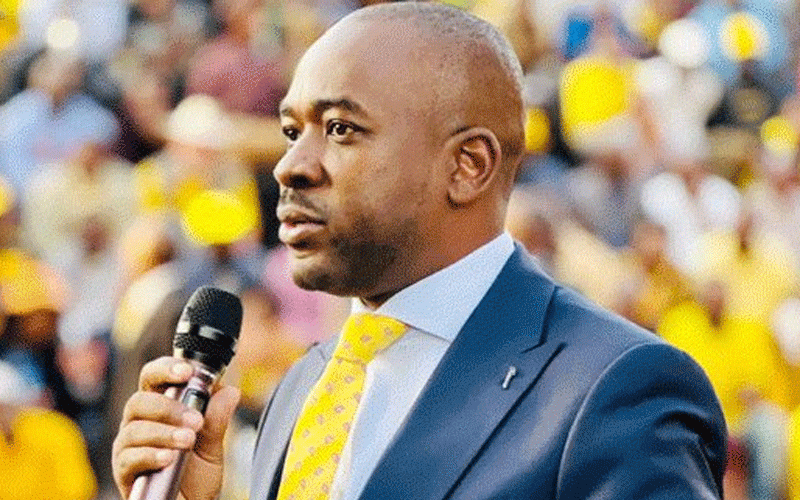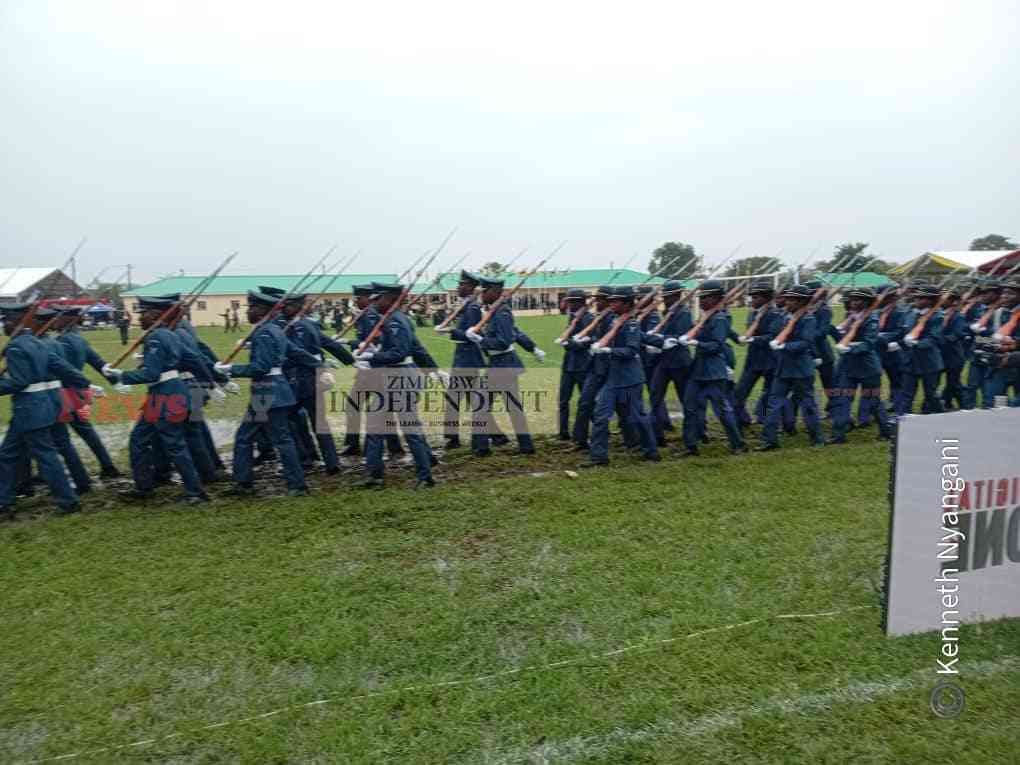
Talk about the death row phenomenon, an experience endured by convicts awaiting execution.
Visualise the indelible emotional scars it imprints on their souls. Imagine living daily under the hanging cloud of death by a hangman’s rope, and the lingering menace of gallows yawning for a moment to clasp at your neck and squeeze the breath out of you once and for all.
What of soldiers walking around daily, brandishing their firearms and bayonets menacingly, and commanding you to sing soundtracks to your own death?
Think of the fear it triggers, the traumas it creates, and the lasting despair it engenders. Sadly, the people of Matabeleland lived through these experiences between 1983 and 1987.
Get it right! Every Matabele person is a survivor of a genocide sponsored by the state of Zimbabwe.
Soon after it assumed power, in 1980, the government of Zimbabwe recruited and trained a special brigade meant to be used in an operation to quell a dissident menace in the country with no dissidents at the time.
The operation was codenamed Gukurahundi, a Shona word for early rains which drive chaff away. It has been used to refer both to the operation and the Brigade which executed it.
The Fifth Brigade killed more than 20,000 unarmed civilians in Matabeleland and the Midlands Provinces using gunfire and other lethal methods. Scores of people were abducted by the Brigade, tortured, and burned alive in grass huts.
- 1989: The year Zanu PF died
- Gukurahundi survivors want closure
- Zapu demands Gukurahundi resolution
- Memorialise Gukurahundi: Pressure group
Keep Reading
Coincidentally, the deployment of the 5th Brigade to deal with the “dissidents” occurred simultaneously with the ruling party, Zanu PF’s active pursuit of a policy of a one-party state.
As a fellow liberation movement fighting British settler rule, PF Zapu was perceived as a stumbling block against the one-party policy and its elimination was prioritised.
However, a genocide was an unnecessary tool to accomplish a one-party state system as other African states such as Zambia, Kenya and Tanzania achieved a one-party system without one. The only logical explanation is ethnic cleansing.
The Robert Mugabe-led government deliberately conflated PF Zapu's political affiliation with being Ndebele, thus justifying an indiscriminate attack on Ndebeleness branded as PF Zapu loyalists. Ndebele identity was broadly defined to refer not only to the native speakers of Ndebele language but to everyone found in the geographical provinces of Matabeleland and Midlands whether Xhosa, Kalanga, Tonga, Nambya, Venda, Sotho or AbaThwa. Ndebeleness meant anything, but not Shona.
All were assigned a monolithic identity ascribed with corporate culpability and punished as a single collective. The verdict passed on one was deemed suitable for all.
Four decades later, there has not been any arrest of the perpetrators. Meanwhile, the scars inflicted by the Gukurahundi operation have putrefied to gukura-wounds tormenting Zimbabweans in and outside of Matabeleland and the Midlands.
To borrow Zenzo Moyo’s metaphor of a “festering internal wound,” the souls of the surviving people of Matabeleland are still tormented by the scars of the torture, the loss of loved ones, and the memories of rape with no panacea or genuine redress on the horizon.
It may seem a far-fetched idea to say that the people outside Matabeleland are indirect victims of the genocide.
However, the ruling elite’s outright reluctance to relinquish power springs from the apprehension of how a successor government may allow or even facilitate their prosecution.
In a will to survive, their fear of revenge and retribution spurs them to cling to power.
Zimbabwe’s political evils captured by Wiliam Mpofu’s article a few weeks back such as the torture of political opponents, vote rigging, military takeovers, and the restricted political space for opposition political parties arise from guilt and trepidation among the perpetrators.
They want to buy time to avoid prosecutions for genocide, crimes against humanity or even war crimes (Articles 5, 6, 7, 8 of the Rome Statute International Criminal Court, 1998).
The metaphorical festering Matabele wound inflicted by Gukurahundi is now a national wound. The beckoning gukura-wounds obstinately stare at Zimbabweans eyeball to eyeball, as putrid scars from a genocide without any healing balm in sight.
As a genocide that the world refused to condemn, the unintended effects of Gukurahundi are here to stay.
Everyone, dead, living and unborn, is a bearer of the ugly emotional, political and economic scars which have refused to disappear despite so many attempts to resolve them.
The dead are perpetrators and victims. The living struggle to gain political transformation, unable to dislodge the establishment responsible for the genocide. The unborn will inherit a country torn asunder by ethnic and tribal tensions whose genesis they know nothing about.
The Unity Accord signed between PF Zapu and Zanu PF in 1987 did not resolve the problems.
The recent attempts to resolve the problem using traditional chiefs have been met with stiff resistance.
A legal solution seems like a better option than a political one. The law was broken and therefore rights must be vindicated.
The massacres were carried out by state security forces clad in the Zimbabwe National Army regalia.
The world requires answers on why it was done as well as who had ordered it. In the absence of formal evidence, knowledge about the operation is conjectural.
The matter has not caught the attention of international law either. In a recent article, Mbuso Moyo asked why up to now the world has not condemned the Matabeleland genocide the way it did those in Cambodia, East Timor, Kossovo,
Yugoslavia, or Rwanda? Cameron (2018) has shone light on that matter in her article titled, “The Matabeleland massacres: Britain's wilful blindness” published by The International History Review.
In an act of complicity, the state of North Korea and Britain provided military training and logistical support to Gukurahundi.
To bring the Matabeleland massacre before the United Nations Security Council would be to indict the British establishment.
They will veto any inelegant attempts to draw the matter to the attention of the whole world and thus parade the King’s pride as a sponsor of genocides.
Considering the low prospects of prosecution in the international arena, the perpetrators of the genocide, namely, Zanu PF and the Zimbabwean state have their backs covered.
The Westphalian absolutist notions of sovereignty are sufficient to shield them from international accountability.
In its crudest format, sovereignty inheres extreme makings of tyranny as a guarantee of exclusive and unqualified power of an authority over territory.
A distinguished international economic law scholar, John Jackson described it as extreme “power to chop off heads or to even violate virgins” with impunity.
Mugabe and his henchmen literally “chopped limbs and deflowered virgins” without any qualms in Matabeleland.
They arrogantly wore and still do the cloak of sovereignty to avoid prosecution and accountability, until Mugabe’s friends-cum-foes replaced him through the coup d'état engineered by accomplices his in 2017.
Perence Shiri, the erstwhile commander of the 5th Brigade, also the notorious Butcher of Bhalagwe and others thus facilitated a smooth transition of power between equally culpable perpetrators.
Emerson Mnangagwa, the minister of state security during the Gukurahundi age is the current president.
Against this background lingers the question; “who will bell the cat?”
*Philani Lithandane Ndlovu (LLD) is a legal researcher and writer affiliated to Unisa South Africa. He writes in a personal capacity. Accessible at philanilithandane@gmail.com









